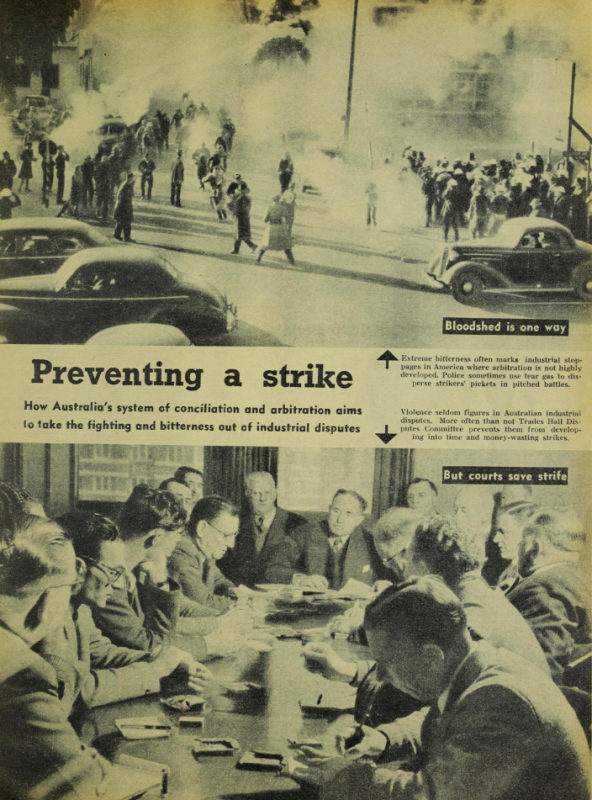The Boilermakers Case
02 March 1956
The separation of powers is examined in the High Court of Australia.
In 1904, the Australian Parliament passed the Commonwealth Conciliation and Arbitration Act 1904 which created the Commonwealth Court of Conciliation and Arbitration. The Court was established to hear and arbitrate – resolve – interstate industrial disputes and to make and enforce awards – agreements for pay and working conditions.
In 1955, the Federated Ironworkers Association (FIA) – a union of steel and ironworkers in Sydney – went on strike. Members of another union – the Boilermakers’ Society of Australia – financially supported the steel and ironworkers. In 1956, the Court ordered the FIA and the Boilermakers to comply with an industrial award – the Metal Trades Award 1952 – which had been set as a result of a dispute in the Court. The award banned any type of industrial action. When the strike continued, the Court found the FIA and the Boilermakers in contempt of court. Both were fined and ordered to pay legal costs. The Boilermakers challenged this in the High Court of Australia.
The High Court found the Arbitration Court had been established as a conciliation and arbitral authority, and it was against the rules of the Australian Constitution for the Australian Parliament to also give it judicial power – the power to make judgements about the law. A court created by Parliament could not have both functions as this would be against the principle of the separation of powers.
The Commonwealth Court of Conciliation and Arbitration stopped operating after the Boilermakers Case in 1956. New industrial relations bodies such as the Australian Industrial Relations Commission (now known as the Fair Work Commission) were created to help resolve industrial disputes.
Preventing a strike, Pix magazine, 1950

National Library of Australia
Description
An article published in Pix magazine 28 October 1950. The article is titled ‘Preventing a strike: How Australia’s system of conciliation and arbitration aims to take the fighting and bitterness out of industrial disputes.’